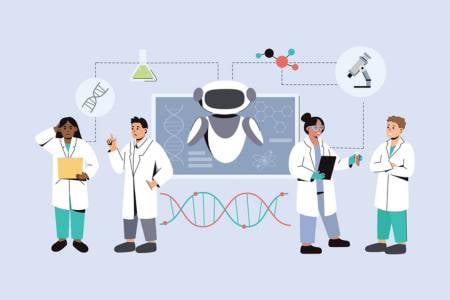
Cloud-Powered Genomics in Healthcare:
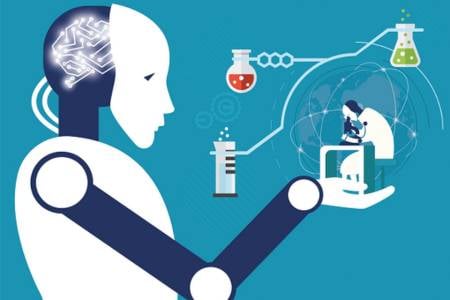
Why are Cloud-Powered Genomics Essential?
An IDC 2017 research shows that there'll be 163 zettabytes of data by 2025 - texts, images, voice notes, videos, or any other form of data. Medical imaging contributes significantly to this humongous data, and genomics is not further away! So, it becomes essential to have a medium to store, manage, and handle this enormous data optimally. Opting for a cloud-based solution provides reliable data storage and facilitates reproducibility and collaboration. Researchers can access vast genomic datasets and conduct analyses in real-time, significantly reducing the time required to make discoveries and develop novel therapies. Also, the cloud's scalability ensures that healthcare institutions can adapt to the growing volumes of genomic data generated over time.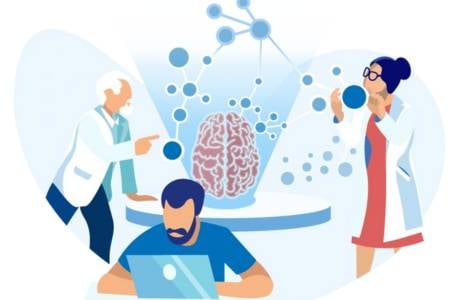
The necessity of cloud-powered genomics at a glance:
- It can store, manage, and handle vast amounts of data.
- You can analyze and run the data simultaneously and collaborate with other researchers.
- It eliminates the need for extensive in-house infrastructure investments, reducing operational costs for healthcare organizations.
- The cloud solution is highly scalable.
How is Data Privacy Ensured in Cloud-Powered Genomics?
Patient data privacy is paramount in healthcare, especially when dealing with sensitive genomic information. Cloud-powered genomics incorporates several robust security measures to safeguard patient data:
- Encryption: Genomic data is encrypted both in transit and at rest, ensuring it remains confidential and secure from unauthorized access.
- Access Controls: Cloud providers implement stringent access controls, limiting only data access to authorized personnel. It ensures that sensitive information is protected from internal and external threats.
- Compliance Standards: Healthcare cloud solutions adhere to industry-specific compliance standards, such as HIPAA, in the United States, ensuring that regulatory requirements handle patient data.
- Auditing and Monitoring: Cloud platforms offer robust auditing and monitoring capabilities, allowing organizations to track data access and detect suspicious activities in real-time.
- Data Residency Options: Some cloud providers offer data residency options, allowing healthcare organizations to choose where their data is stored, ensuring compliance with regional data protection regulations.
- Consent Management: Patient consent management systems are integrated into cloud-powered genomics platforms, enabling patients to control how their genomic data is used and shared.
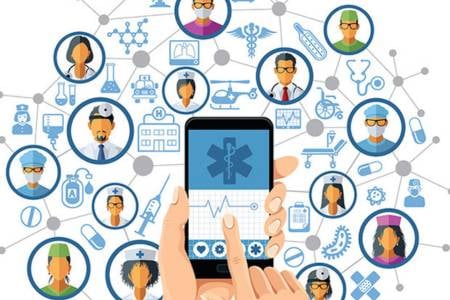
Use Case of Cloud-Powered Genomics:
Market leaders are already investing and inventing cloud-related solutions for genomics data. For example, Microsoft Genomics is a highly scalable cloud-based service that performs secondary human genome analysis and generates long-lasting genetic variant databases in hours rather than days. It is ISO-certified and compliant with HIPAA guidelines. St. Jude Children's Research Hospital and Seattle Children's Hospital in the USA have used the Microsoft Genomics service to create high-quality clinical genomic data sets for pediatric disorders.
Another example is Amazon Omics. Researchers can upload petabytes of genomic, transcriptomic, proteomic, and other "omics" data to the cloud using this AWS service.
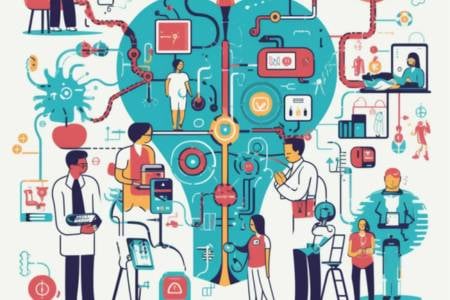
How Generative AI is Revolutionizing Healthcare through Cloud-Powered Genomics?
Generative Artificial Intelligence (GenAI) is a pivotal component of the revolution in cloud-powered genomics. GenAI leverages advanced machine learning algorithms to generate new insights and predictions from genomic data. Here's how GenAI is reshaping healthcare through cloud-powered genomics:
- Predictive Analysis: GenAI can predict how different genes can interact with each other. It explores a new direction of analysis by learning genome features from DNA sequences. For instance, protein binding to RNA is significant in gene expression (DNA converts into protein). GenAI can predict these interactions from the massive cloud-based genome data, allowing researchers to predict new mutations in genome sequences. Scientists, for example, used a genome-scale language model to predict and recreate the evolution of the SARS-CoV-2 virus.
- Combating Polygenic Diseases: Diseases that occur due to the combined action of multiple genes are known as polygenic diseases. Heart disease, stroke, asthma, Type 2 diabetes, breast cancer, Schizophrenia, etc., are typical examples of polygenic diseases. This disease is caused by both structural abnormalities and major epigenetic factors in your DNA. For decades, decoding the root causes of these diseases has been a puzzling maze for scientists. By forecasting gene expression and creating a virtual genome through GenAI, scientists and researchers can understand the contributing factors to the polygenic disease occurrence. Consequently, they can research these diseases' treatments and solutions.
- Reduce the Data Error Possibilities: Artificial Intelligence (AI) can accurately assess genomic data in clinical diagnostics, utilizing machine learning and deep learning systems. Traditional statistical techniques may not be convenient for clinical genomics due to the chance of errors. But, when AI is integrated with cloud-based genomic data, researchers can uncover new insights into diseases and improve interpretability, transforming it into valuable clinical insights.
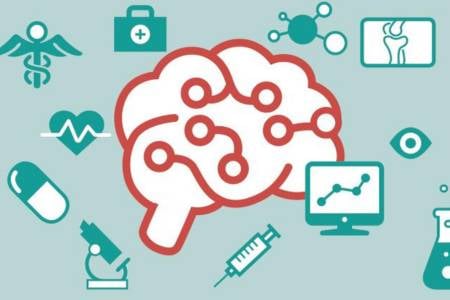
GenAI Geromics Use Case:
- COVID-19 Virus tracking and controlling the outbreak: Genome sequencing and AI are being used by organizations worldwide to prevent the COVID-19 outbreak and track variants, including the CDC in the United States and Genome Canada.
- Diagnosis of Chronic Kidney Disease: A collaborative research by AstraZeneca and Columbia University found the causative genetic variants in approximately 9% of the patients among 3,315 patients for chronic kidney disease. With the help of generative AI, this clinical insight opened a plethora of opportunities to treat this condition.
Conclusion:
Cloud-powered genomics, fueled by Generative AI, is a game-changer in the healthcare industry. It empowers healthcare organizations to harness the potential of genomic data for research, clinical decision-making, and drug development while ensuring robust patient data privacy. The future of healthcare is undoubtedly shaped by the transformative power of genomics and artificial intelligence in the cloud.
Looking to leverage GenAI to reduce the hassles in the Healthcare Industry? Reach out to us now!


